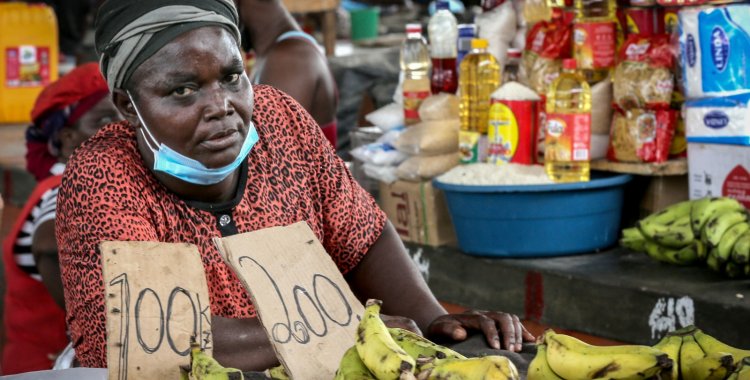The data was presented this Tuesday by the Minister of Public Administration, Labor and Social Security, Teresa Rodrigues Dias, noting that the issue of informality in the Angolan economy is a concern for the Angolan executive.
"We have an informality rate of around 80 percent and, in order to transform them into decent and sustainable jobs, we need, naturally, to do this work of converting informal jobs into formal jobs," said the minister.
Speaking at the opening of the 1st International Forum for the Reconversion of the Informal Economy (FIREI), which takes place in Luanda, Teresa Rodrigues Dias reported that the first phase of the Informal Economy Reconversion Program (PREI) formalized 253,000 economic agents, between November 2021 and July 2023.
The minister noted, in her intervention, that in light of PREI, the Angolan executive has already made six billion kwanzas available in microcredit and the actions of this program must be "continuously improved".
Creating an informal economy database and transferring informal economic agents to formality are some of PREI's objectives, with the Angolan authorities planning to formalize one million economic agents by 2024.
Speaking to journalists, Teresa Rodrigues Dias said that the transformation from the informal to the formal economy is a process that must also count on the support of operators in the sector, especially in fulfilling their obligations.
"We have people who accept formalization, receive resources, microcredit, but then do not fulfill their obligations and this we have to appeal to citizens that they must fulfill their duties", she noted.
According to the minister, the fishing, agriculture and domestic work sectors are the most critical areas where there are the largest number of informal operators.
Asked about the bureaucracy that still persists in the process of formalizing the Angolan economy, Teresa Rodrigues Dias assumed that the country's administrative machinery is still bureaucratic.
"Yes, we cannot have illusions, we have a country where the administrative machinery is really bureaucratic and that is also why the executive is working on simplifying administrative acts and we could not say that in the case of PREI it is not yet", she highlighted.
PREI, coordinated by the Ministry of Economy and Planning, is co-financed by the Angolan Government, the European Union and the United Nations Development Program (UNDP) and has ten integrated public services.
The services of civil identification registration, tax administration, single window, the National Institute of Support for Small and Medium Enterprises, the National Institute of Social Security, the National Institute of Employment and Professional Training and others are part of the PREI.
FIREI runs until Wednesday, in the capital, and brings together several Angolan and foreign experts to discuss the formalization of the economy.







